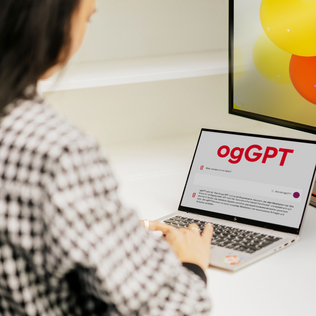Medgate Medical Co-Pilot: How AI Relieves Doctors and Improves Patient Care

Amid the alarming shortage of doctors, the Swiss telemedicine provider Medgate is leveraging innovative technologies: With their GenAI-based Medical Co-Pilot, they relieve doctors of administrative tasks while simultaneously improving the quality of patient care. Following successful tests in Switzerland, this groundbreaking "Medical Co-Pilot" could soon be deployed in Germany – an essential step towards optimizing our healthcare system.
According to Federal Health Minister Karl Lauterbach, Germany will face a shortage of up to 50,000 doctors in the coming years. The situation is particularly tense in rural areas. Additionally, on average, doctors spend two to three hours each day on administrative tasks – time that is lacking for direct patient care. This scenario is also evident in many other EU countries. In Switzerland, Medgate is addressing this issue with an intelligent solution that enhances both efficiency and quality in medical care.
The Medical Co-Pilot: AI Colleague Supporting Doctors
The Medical Co-Pilot is an AI-powered tool specifically designed for telemedicine. Utilizing generative artificial intelligence and other technologies from Microsoft, it assists doctors during online patient consultations with three innovative AI features: the "Automated Summary," "CarePrompt," and the "Next Best Question" feature. The Medical Co-Pilot is also multilingual, ensuring accessibility and precision in various situations.
Three Smart AI Features to Relieve Doctors
The "Automated Summary" function is part of the pilot project in Switzerland and allows for an automated summary of the patient conversation using speech-to-text technology. It captures the doctor's voice to accurately document the medical history, findings, and treatment. Thanks to a tailored language model, it currently reduces documentation time per case by ten to 20 percent.
The "CarePrompt" is already integrated into the chat between patients and doctors in the Medgate app. Doctors can enter keywords like "Cough?" to activate the feature, which uses generative AI to suggest relevant comprehensive medical questions and treatment recommendations such as "Is it a cough with phlegm? How long have you had the cough?" This function reduces the time spent on message creation by up to 40 percent and additionally enhances consultation quality through more thorough inquiries.
The "Next Best Question" feature analyzes the chat history in real-time and suggests possible questions for health assessment. For instance, if a patient is asked about a cough, the system might follow up with: "Have you done anything about it?" or "Do you smoke?" This intelligent approach enables diagnoses to be made up to 30 percent faster.
Doctors maintain control over all functions and decide whether to accept or modify the suggestions to ensure the highest standards of medical care.
Comprehensive Validation by a Specialized Expert Team
The tool was developed by Medgate's in-house innovation team. Validation was carried out by the "Medical Affairs" department at Medgate, a team of five doctors who rigorously tested the Co-Pilot. To ensure the long-term quality of the system, continuous monitoring will be implemented. Data protection is a top priority: no personal data is shared with the systems; it is pseudonymized and stored exclusively in the country where it was collected – currently, that is Switzerland.
Responsible Innovations with Impact
Following the successful pilot project, Medgate plans to introduce the Medical Co-Pilot in Germany as well. The combination of innovative technology and a clear focus on efficiency and quality could be a crucial lever in addressing the challenges facing European healthcare. Through further development after extensive testing in Switzerland, the AI colleague could not only reduce the workload of doctors in Germany but also elevate patient care to a new level. With this AI-powered tool, Medgate sets a new standard in telemedicine and demonstrates how responsible innovation can shape the future of medical care.





